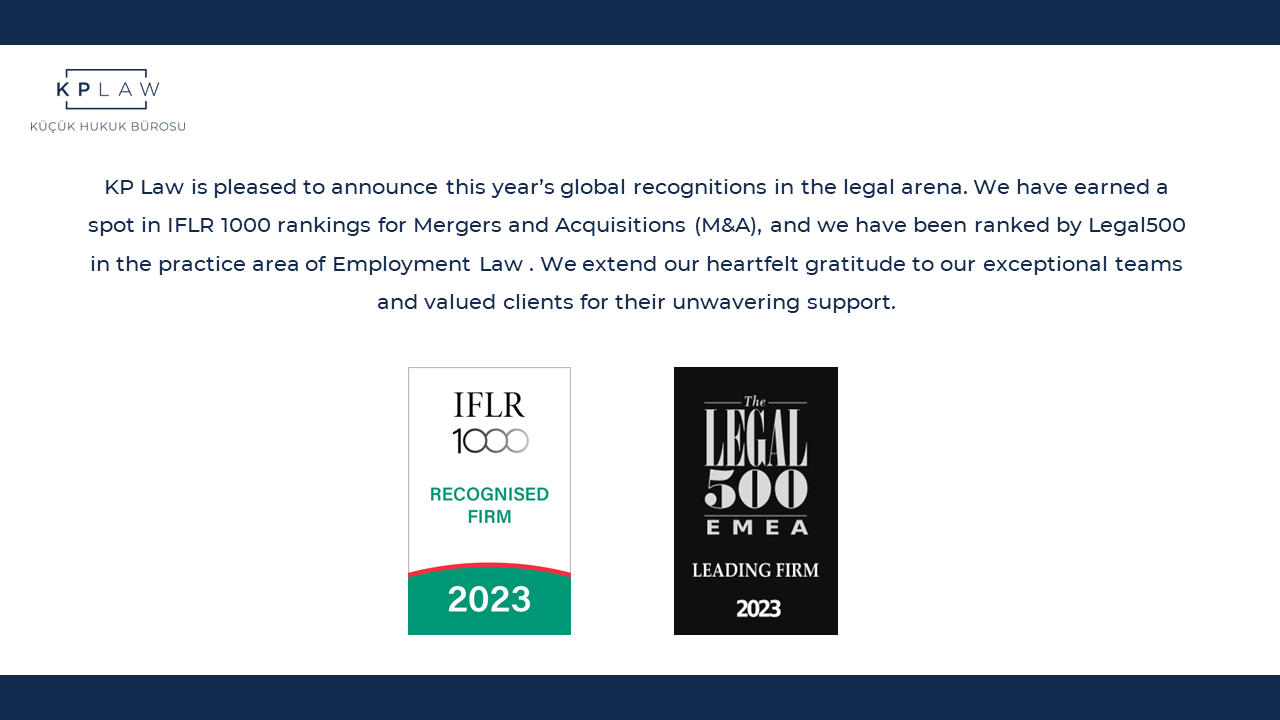News & Insights
Well-Known Trademark Registrations in Turkey

Mine Peynircioğlu | ASSOCIATE
09.11.2023In the realm of intellectual property, trademarks play a pivotal role in distinguishing products and services, helping consumers in making informed choices. Trademarks have evolved significantly over the years, ranging from simple wordmarks and logos to more complex forms, such as sound and motion marks. Among these, well-known trademarks hold a distinct and privileged position.
Well-known trademarks enjoy a distinct reputation and public recognition and are typically granted increased protection under trademark law. This protection is not limited to the goods and services they are registered in but extends to unrelated classes, aiming to prevent third parties from exploiting the well-known mark's reputation. The recognition of well-known status is a valuable tool for trademark owners. Turkish Patent and Trademark Office (TürkPatent) maintains a registry for trademarks that meet specific criteria for well-known status.
However, a significant legal development in 2020, stated in the Court of Cassation's 2019/2980 E., 2020/991 K. numbered decision dated February 5, 2020, has cast some uncertainty regarding the registration process of the well-known trademarks. This decision stated that TürkPatent lacks the authority to establish a registry for well-known trademarks and emphasized that well-known status is a dynamic concept, necessitating a case-by-case evaluation. Following this ruling, it has been observed that first instance courts and regional appellate courts have followed the Court of Cassation's judgment. Consequently, judgments rejecting cases against well-known trademark applications, previously dismissed by the Turkish Patent and Trademark Office, have been issued. For instance, in a decision dated November 30, 2020, and numbered 2020/745 E. - 2020/5483 K., the Court of Cassation ruled on TürkPatent's refusal to register a trademark as a well-known mark. This ruling not only upheld TürkPatent's decision but also underlined and questioned TürkPatent's competence in establishing a well-known trademark registry. As a result, the Court of Cassation concluded that TürkPatent lacks the authority to create such a registry and that there is no legal interest in pursuing this case adding status of being well-known is not an established fact but rather a circumstance that must be proven on a case-by-case basis, as emphasized in prior precedents. In summary, since its initial ruling in 2020, the Court of Cassation has consistently called into question the authority of TürkPatent in this matter.
Nonetheless, TürkPatent continued and continues to accept applications for well-known trademark status, despite conflicting with the legal precedent that questions its authority to do so. Although this disparity may confuse trademark owners, there is a prospect for clarity in the future. Anticipated regulatory changes may explicitly grant the authority to TürkPatent to maintain the well-known trademark registry, thus reconciling these discrepancies.
While trademark owners with well-known brands face no obstacles when applying for well-known status, the process of obtaining well-known status in Turkey is a meticulous procedure. To establish a trademark as well-known in Turkey, trademark owners must consider the criteria outlined by TürkPatent, such as the brand's history, geographical reach, scope of use, market share, promotional efforts, activities contributing to brand recognition, legal efforts for brand protection, the duration of brand recognition, evidence of trademark infringement, and susceptibility to infringement, among others. For TürkPatent's evaluation, trademark owners seeking well-known status must provide documentation and evidence related to these factors.
In conclusion, the process of well-known trademark registration in Turkey, offering enhanced legal protection, currently faces uncertainty due to a 2020 legal decision that questions TürkPatent's authority. Despite this, TürkPatent continues to accept applications. Anticipated regulatory changes may bring clarity in the future. However, it's important to note that challenging TürkPatent's rejection of a well-known trademark application through legal action is currently not a fruitful endeavor considering the Court of Cassation's ruling. Trademark owners must meticulously meet TürkPatent's criteria, providing appropriate documentation and evidence for their applications, as they navigate this evolving landscape with care and diligence.

